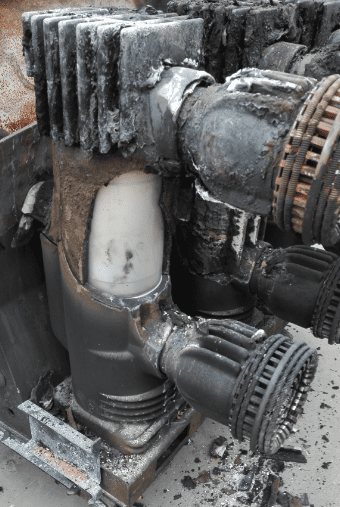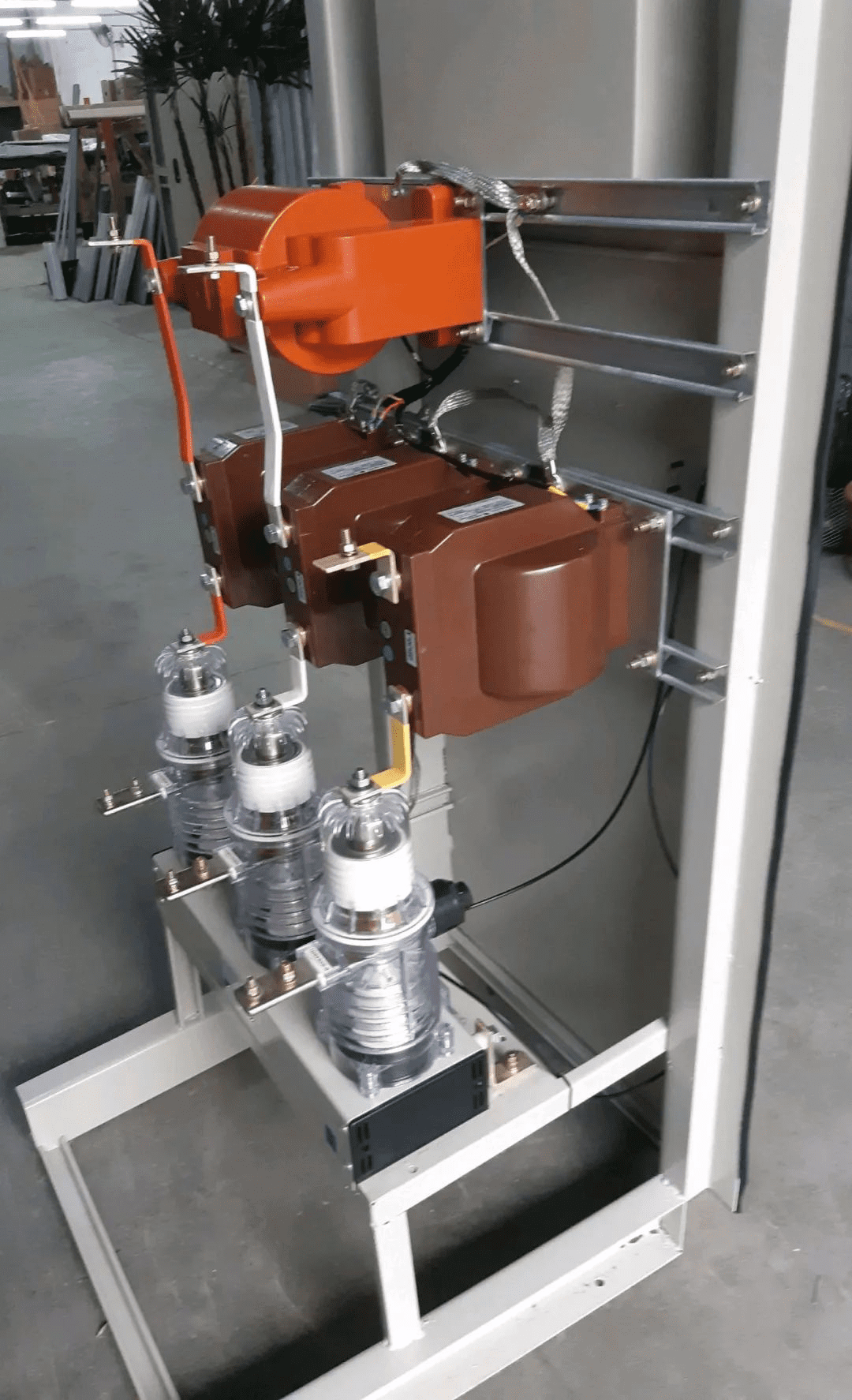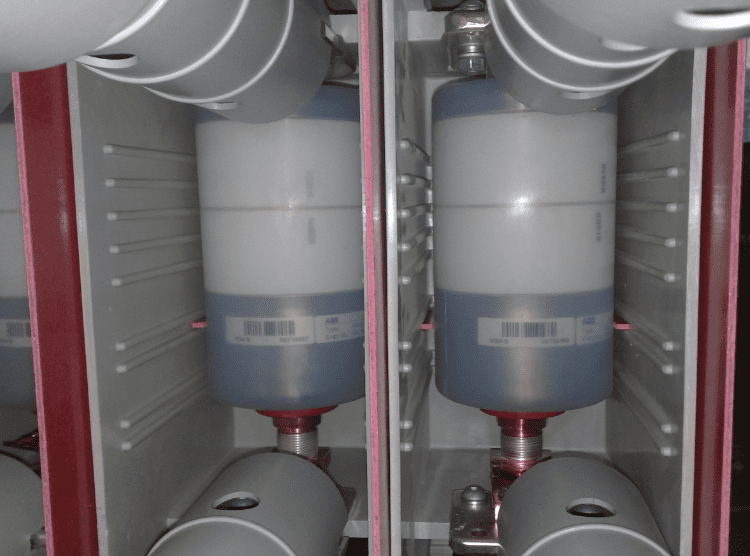The loss of vacuum in a vacuum interrupter can have various consequences depending on the operating conditions. Here are the consequences for different scenarios:

a. Contacts Open:
If the contacts are open, the loss of vacuum typically does not affect the system significantly. The vacuum interrupter’s condition is not critical when the contacts are not in the closed position.
b. When Closing the Circuit Breaker:
When closing the circuit breaker with a vacuum interrupter that has lost vacuum, it may not be able to perform its intended function correctly. The interrupter might not be able to handle the load, and the breaker may fail to interrupt the current.
c. When Closing a Gate and Operating Normally:
If the circuit breaker is in a normal operating mode and a gate is closed with a vacuum interrupter that has lost vacuum, the system may continue to function normally unless the vacuum loss impacts the breaker’s performance.
d. When Breaking and Opening Normal Currents:
The consequences of vacuum loss when breaking and opening normal currents depend on the nature of the load. If the load served by the faulty breaker is delta-connected (ungrounded), the loss of vacuum might not cause significant issues. The current in the faulting breaker may stop, and the other phases can handle the load.
In the case of grounded loads, where the two good phases are opened (phase 1 and phase 2), the current in phase 3 may continue to flow. This can lead to arcing in phase 3, and the interruption of the current may only occur when backup protection measures are activated. The result may be damage to the circuit breaker.
e. When Opening and Breaking a Fault:
Opening and breaking a fault with a vacuum interrupter that has lost vacuum may lead to continued arcing in the faulted circuit. The interruption of the fault current might require backup protection measures and may result in circuit breaker destruction.

In summary, the consequences of vacuum loss in a vacuum interrupter can vary, and the impact depends on the specific operating conditions and the nature of the load. Vacuum interrupters are designed for high reliability, and modern vacuum interrupters have significantly lower failure rates compared to early designs. Today’s vacuum interrupters are highly reliable and have a long service life, making them suitable for various power applications.

